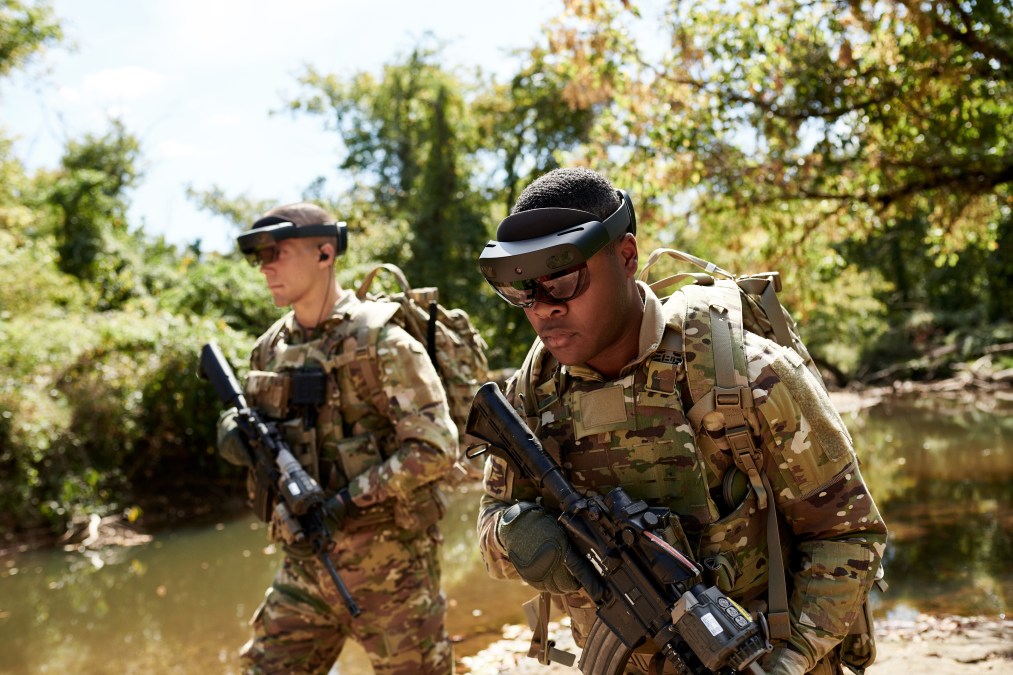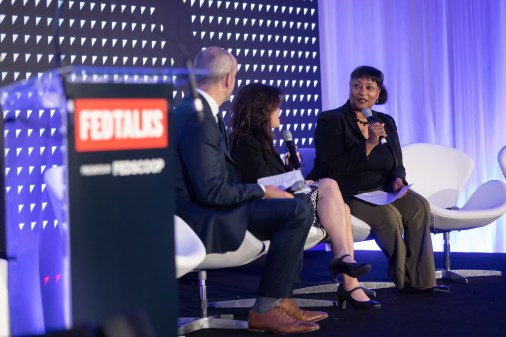Army reaffirms commitment to $22B IVAS system

The Army on Monday reaffirmed its commitment to the $22 billion Integrated Virtual Augmentation System (IVAS) headset development program, saying that it would “require a little more time,” but will still result in the rollout of a next-generation combat system.
In a joint statement, senior acquisition official Karen Saunders and the commanding general of Army Futures Command, Gen. John Murray, said the procurement process would still result in the deployment of a system that is still six to 10 years ahead of a traditional acquisition program timeline.
It comes after the Army last week confirmed that it would push back operational testing of the IVAS unit until May 2022 and live deployment of the new technology until September 2022. The IVAS headset is a night vision and augmented reality system designed by Microsoft and based on its HoloLens 2 headset.
In its statement, the Army said that it had not halted or stopped the program and that the pushed-back timeline would ensure soldiers receive best-in-class technology.
“Calculated risk and time for adjustment have been baked into our processes, and are vital to rapid Army modernization practices. The new timeline does not affect contract agreements,” representatives for the service added in a statement.
The $22 billion program was developed in partnership with Microsoft, using the company’s HoloLens technology to build headsets for soldiers.
Department of Defense (DOD) Chief Technology Officer Heidi Shyu recently said that AR headsets will be critical in future military operations, but the DOD still needs more bandwidth for expansive use.






